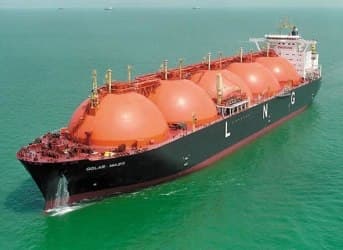On the surface of it, Russia, the world’s second leading hydrocarbon exporter and Japan, Asia’s second leading energy importer, seem a business arrangement made in heaven.
Except for one small historical detail – World War Two. On 8 August, two days after the U.S. dropped an atomic bomb on Hiroshima and the day before the U.S. dropped a second on Nagasaki, the USSR abandoned its neutrality treaty with Japan signed in April 1941, and in a lightning campaign lasting less than a month, overwhelmed Japanese Kwantung Army military forces in Manchuria and took the Kurile islands into the bargain.
All of the Kuriles remain under the Russian jurisdiction, but Japan claims the two southernmost Iturup and Kunashir as part of its “Northern Territories,” as well as Shikotan and the Habomai islets, and Moscow’s refusal to bargain on them has led to the fact that, 67 years after the end of WW2 for the rest of the world, Japan and the Russian Federation have yet to conclude a definitive peace treaty.
Which has left trade and investment between energy-rich Russia and energy-poor Japan at a fraction of the level that it might be had the countries developed normal relations.
All that may be about to change however, as last week Japan and Russia agreed at a meeting in Tokyo to expand cooperation in developing Russia's Far East through joint projects in such fields as energy, agriculture and infrastructure.
Related Article: Ukraine Crushed in $1.1bn Fake Gas Deal
Not that the 10th session meeting of the Japan-Russia Intergovernmental Committee on Trade and Economic Issues, held at the Iikura Guest House, are bereft of political overtones. Japanese officials are hoping, by advancing bilateral economic cooperation, to make progress on their demand for the return of their “Northern Territories.”
For the moment however, such issues were buried below the raft of sake and vodka toasts, with Japanese Foreign Minister Koichiro Genba commenting, "Building relations that are appropriate as partners in the Asia-Pacific region by advancing cooperation in various fields would be of strategic interest to each other."
In turn, Russian First Deputy Prime Minister Igor Shuvalov stated his hopes that the Japan-Russia Intergovernmental Committee on Trade and Economic Issues would discuss how the two nations could "join forces" to solve issues related to Japanese investment in Russia.
Moscow is taking nothing for granted in sending Shuvalov to Tokyo. Shuvalov reportedly enjoys the confidence of Russian President Vladimir Putin and is second-in-command of Russia's Cabinet, in charge of the country's economic reforms.
And the results of the session were immediately apparent. Shuvalov told reporters in Vladivostok, "In Japan, we have been meeting with the associations of industrialists and entrepreneurs. And at the end of the meetings it was agreed that in December, within 10 days, a larger Japanese delegation will visit all of Russia’s far eastern regions, including Primorye, which will look at the opportunities that are there, with various Japanese company delegations presenting business plans to implement in Russia’s far east."
And topping the Japanese delegation’s wish list is the possible construction of a large liquefied natural gas plant in the far eastern Primorye district.
Related Article: Europe Hot for Algerian Shale Gas
So, what might interrupt the incipient Russian-Japanese investment love fest?
The Japan-Russia Intergovernmental Committee on Trade and Economic Issues memorandum noted that both Tokyo and Moscow agreed that energy resources should be provided for Japan under terms that are "mutually beneficial."
The key operative phrase here is "mutually beneficial." Russia’s traditional policy with its Central Asian natural gas suppliers and its European customers has been to “buy cheap and sell dear.” Will Moscow cut the Japanese some slack on pricing in order to attract their investment in the far east, traditionally Russia’s poorest and least populated region?
ADVERTISEMENT
Or will Gazprom try to stick it to Tokyo, which is scrambling to locate alternative energy imports in the wake of the Fukushima March 2011 nuclear catastrophe, which led to the off-lining of the nation’s nuclear reactors, which previously generated roughly a third of the nation’s electricity?
And will the deal founder because of the Kuriles, which vociferous Japanese and Russian nationalists both insist are integral parts of the homeland?
The future is anything but clear at this point.
By. John C.K. Daly of Oilprice.com


















